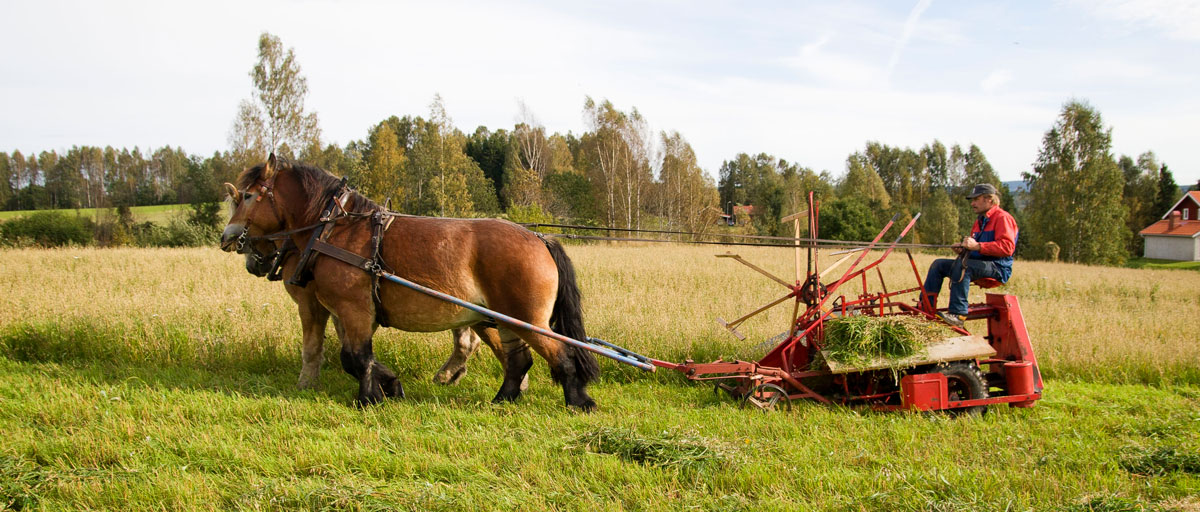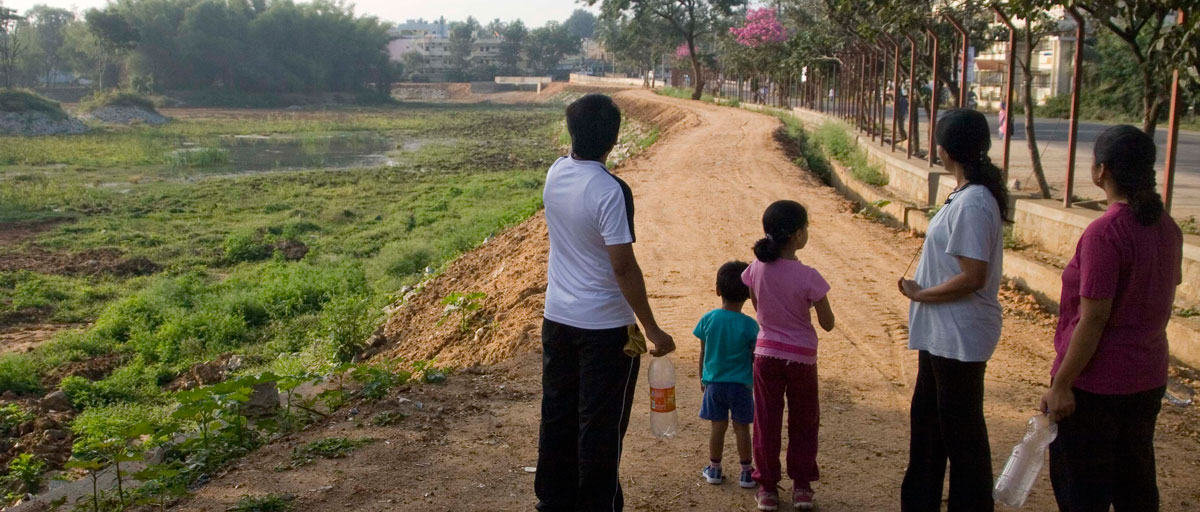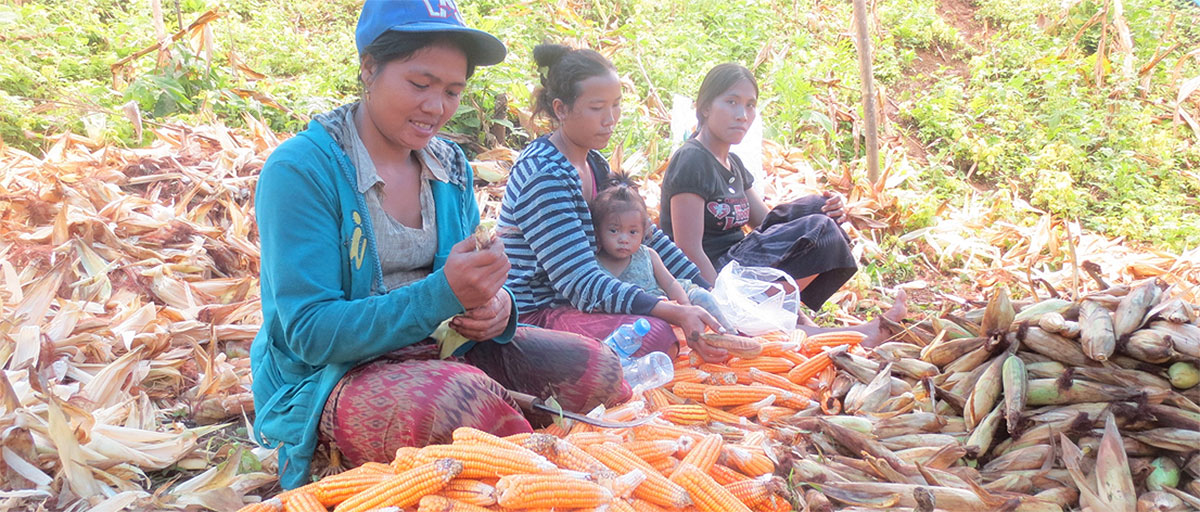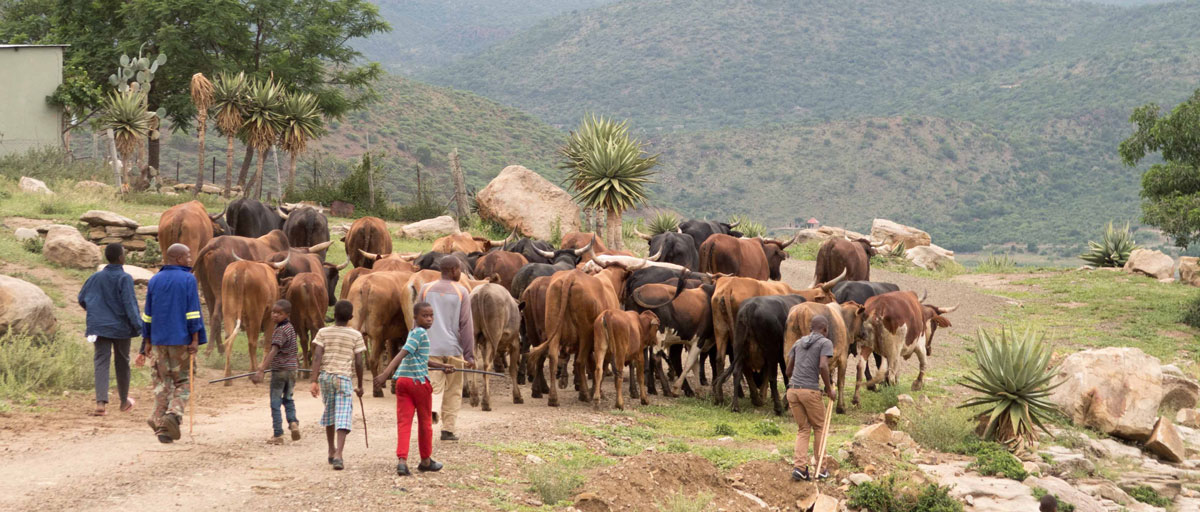
Decision makers have valued monetary benefits over use and experiential benefits from nature in rangelands in southern Africa which has led to one-dimensional sustainability interventions which have often failed. A new study attempts to understand the relationship between environmental stewardship and the benefits humans derive from nature. Photo: R. Alcock.
Bildtext får vara max två rader text. Hela texten ska högerjusteras om den bara ska innehålla fotobyline! Photo: B. Christensen/Azote
Stewardship
Nurturing nature
New research explores how environmental stewardship attitudes are influenced by the benefits humans receive from their environment
- Humans derive multiple benefits from nature – including money, use of nature and experience – and our ability to access these benefits influences how we behave towards nature
- Authors present a conceptual framework - a loop - that illustrates the dynamic interrelation between these benefits and people’s values and actions towards ecosystems
- Applying the framework to real-life cases, as authors do in the article, generates insights and future questions for research and for sustainability interventions to serve both people and nature more effectively
Since the time of the Mayans and maybe even before that, we humans have called nature our mother - a reference that symbolises our deep connection to nature and our multiple dependencies on it. Sadly, despite such long-held understandings, human pressure on the planet is seriously reducing nature’s capacity to act as our nurturer. If this trend is to be reversed, it is essential we find new ways and nurture old ways to relate to nature – where we act as its nurturers and stewards and not just as its consumers.
New research from the centre published in the Journal of Global Sustainability is an attempt to understand the relationship between environmental stewardship and the benefits humans derive from nature.
The research was led by Vanessa Masterson and Maria Tengö who convened a workshop and collaborated with Tim Daw, Grace Wong, Viveca Mellegård and Odirilwe Selomane (also from the centre) and with external colleagues based in universities in South Africa, the UK and the USA (including SRC PhD graduate Maike Hamann).
Their article offers a conceptual model (see figure below) to unpack how the different kinds of benefits humans receive from ecosystems impact the attitudes and values humans hold towards them.
%20stewardship,%20masterson%20et%20al%202019%20Jerker%20Lokrantz.jpeg)
Integrative conceptual model illustrating the dynamic interrelation between ecosystems (1), their benefits to people (2), well-being (3), and people’s values and actions (4–5) that affect the condition of eco- systems. Red circles on the right side of the loop refer to factors that mediate the benefits from ecosystems, such as access to resources as well as capacity to acquire the benefits. On the left hand side, the red circle shows that agency and institutions also influence what environmental actions are possible and for whom. Illustration: J. Lokrantz/Azote
Nature’s many fruits
Although many studies have explored the connections between human well-being and ecosystem services, the authors find a scarcity of literature that holistically explores how feedbacks between ecosystem services and well-being affect environmental sustainability and livelihoods, especially for the global South. The authors here classify nature’s services into three categories: direct use (e.g. firewood), money (e.g. selling timber) and experiences (e.g. the aesthetic benefits of taking a walk in the forest). This classification builds on the recent work of co-author Tomas Chaigneau and colleagues.
Understanding the complex relationships between well-being and nature can guide better interventions for sustainably improving well-being and alleviating poverty
Vanessa Masterson, lead author
Benefit-distribution amongst users is a contentious issue. It underpins social and political power relations and thus “pro-environmental behaviour” towards ecosystems is directly influenced by how equitably people think benefits are distributed. Additionally, while people’s perceptions are important, their actions are not always in line with those perceptions. As Wong says “actions affecting ecosystems respond not just to the individual perceptions of ecological dynamics and the benefit basket, but also to the institutional context shaped by particular types of knowledge, ways of doing and habits and norms that have been moulded historically by power relations.”
In an attempt to better understand these linkages, the authors broaden the discussion by incorporating insights well developed in political ecology, geography and anthropology about how the actions of resource users are a function of institutional constraints, political capacity and cultural and economic values. To explore the usefulness of the conceptual framework, the authors apply it to two real-life case studies: southern Africa’s communal rangelands and Indonesia’s Kalimantan forests.
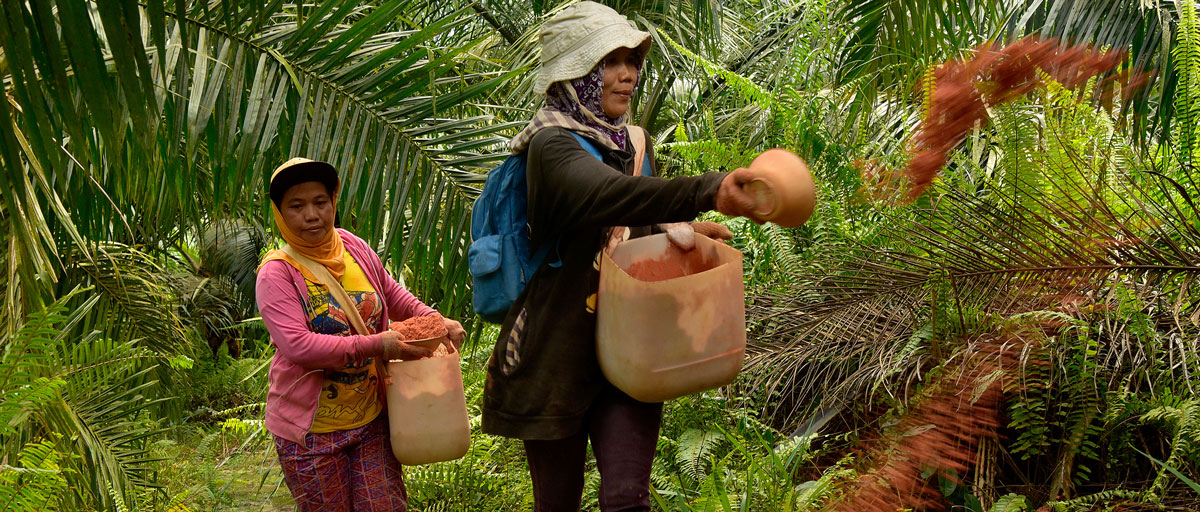
In Kalimantan, Indonesia there is a shift from mixed forest and smallholder agriculture towards oil-palm, thus monetary benefits dominate state planning, but the recognition of the use and experience benefits is reflected by local values expressed in community protests. Photograph by Icaro Cooke Viera.
A tale of two lands
Drawing from authors’ (Susi Vetter and Michelle Cocks) experience in southern Africa’s communal rangelands the paper illustrates how an “incomplete understanding of the full benefit basket and the complexities of how those benefits are distributed amongst people” has meant that multiple interventions to improve the quality of rangelands have been unsuccessful. In Indonesia’s Kalimantan region where author Grace Wong has worked for many years, the authors discuss how large-scale conversion of land (forested and agricultural) to commercial plantations has negatively impacted people’s wellbeing and sense of identity as derived from those lands; especially compromising women’s ability to own these lands. By ignoring the loss in benefits and shifting power relations to outside entities, the State’s attempts to work collectively with Kalimantan’s farmers have failed.
To make interventions more effective then, planners need to consider not only the type of benefits ecosystems provide but also foster awareness of the full range of benefits and support mechanisms that enhance the agency of resource users.
“Both case studies call for a broader and more inclusive range of benefit mechanisms to be recognized, and challenge dominant discourses that inform and justify the types of intervention approaches and institutional structures that empower large corporations and elites over small-scale landholders,” says Maria Tengö.
A starting point to encourage stewardship
The article sets the scene for having a broader discussion about the relationship between human well-being and ecosystem stewardship. “Informed by a socio-ecological systems perspective the conceptual model compels us to examine the potential impact of poverty alleviation and development interventions on the ways in which we benefit from ecosystems and on individual and collective action,” says Maria Tengö.
The authors conclude by outlining questions and challenges that emerge from the conceptual loop model. For example, given the hegemony of capitalist markets in assigning value to nature’s services it is challenging to get resource managers to recognize ecosystem benefits that are unpriced. As a related point, the researchers recognize that different groups value nature differently. Hence, attitudes towards the benefits received vary which then impacts how people treat ecosystems.
Policy researchers will inevitably need to delineate such divergent perspectives in the current context of serious environmental change – here the framework offered by Masterson and her colleagues can be a promising starting point.
Masterson, V.A., Vetter, S., Chaigneau, T., Daw, T. et al. 2019. Revisiting the relationships between human well-being and ecosystems in dynamic
social-ecological systems: Implications for
stewardship and development. Global
Sustainability 2, e8, 1–14. https://doi.org/
10.1017/S205947981900005X
Vanessa Masterson is a postdoctoral researcher at the centre. Her research fouses on land-use planning, stewardship and marginalized poor rural communities, partiularly in southern Africa.
Tim Daw studies the interaction between ecological and social aspects of coastal systems and how these contribute to human wellbeing and development.
Grace Wong's research focuses on ecosystem services, poverty and equity within complex social-ecological systems.
Maria Tengö’s research sets out to understand how positive connections between people and nature matter for moving towards trajectories of ecosystem-based management for human well-being.


